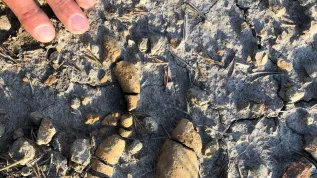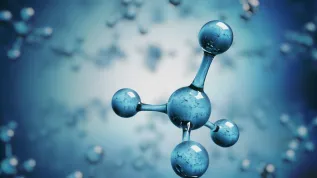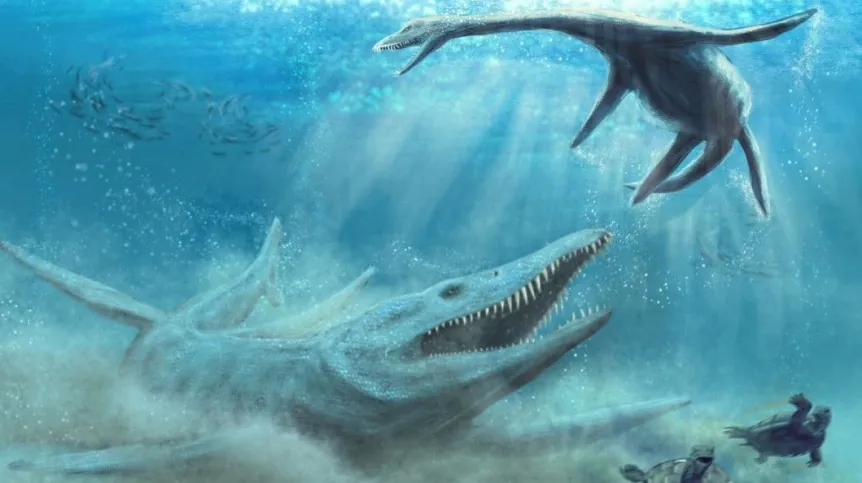
Bones belonging to a huge Jurassic sea predator have been discovered in a cornfield near Iłża (Mazowieckie).
The bones from pliosaurs, the largest of marine predators living in Jura 150 million years ago, were discovered by palaeontologists in the village of Krzyżanowice.
When large dinosaurs roamed the earth 150 million years ago, another group of large reptiles lived in the seas. They were pliosaurs - the largest predators of their time.
"They measured over 10 meters in length and could weigh up to several dozen tons. They had powerful, large skulls and massive jaws with large, sharp teeth. Their limbs were in the form of fins. We found bones of these pliosaurs in the north of the Świętokrzyskie Mountains," says one of the discoverers, palaeontologist Dr. Daniel Tyborowski from the Museum of the Earth of the Polish Academy of Sciences in Warsaw.
He published his findings together with Dr. Błażej Błażejowski from the Institute of Paleobiology of the Polish Academy of Sciences in Proceedings of the Geologists' Association (https://www.sciencedirect.com/science/article/abs/pii/S0016787819301063?via%3Dihub).
Discoveries in the form of the remains of Jurassic pliosaurs are very rare. "In Europe, they have been discovered only in a few countries, never before in Poland," said Dr. Tyborowski.
In addition to pliosaur bones, palaeontologists also discovered several other animal species from the same era. There are also plesiosaurs (long-necked cousins of pliosaurs), turtles and ancestors of modern-day crocodiles; those from Krzyżanowice reached 6 meters in length. In total, several hundred bone remains were counted.
According to the researcher, this accumulation of Jurassic fossils is also unique in the world.
In the era of dinosaurs, the Świętokrzyskie Mountains area was an archipelago of tropical islands. There were also warm lagoons and shallow sea reservoirs. "This environment was home to the marine reptiles we discovered," the scientist says.
"Sea turtles ate large snails, while they themselves fell prey to large crocodiles. We know this because we found teeth marks left by those reptiles on turtle shells. On the other hand, powerful pliosaurs hunted all animals whose fossils we discovered at this site," - the palaeontologist says.
Researchers emphasize that research on the newly discovered cluster of fossilized remains of Jurassic animals in Krzyżanowice is just the beginning.
"We hope that the next months and years will bring even richer material in the form of bones of large reptiles," concludes Dr. Tyborowski.
PAP - Science in Poland, Szymon Zdziebłowski
szz/ ekr/ kap/
tr. RL
Gallery (5 images)
-
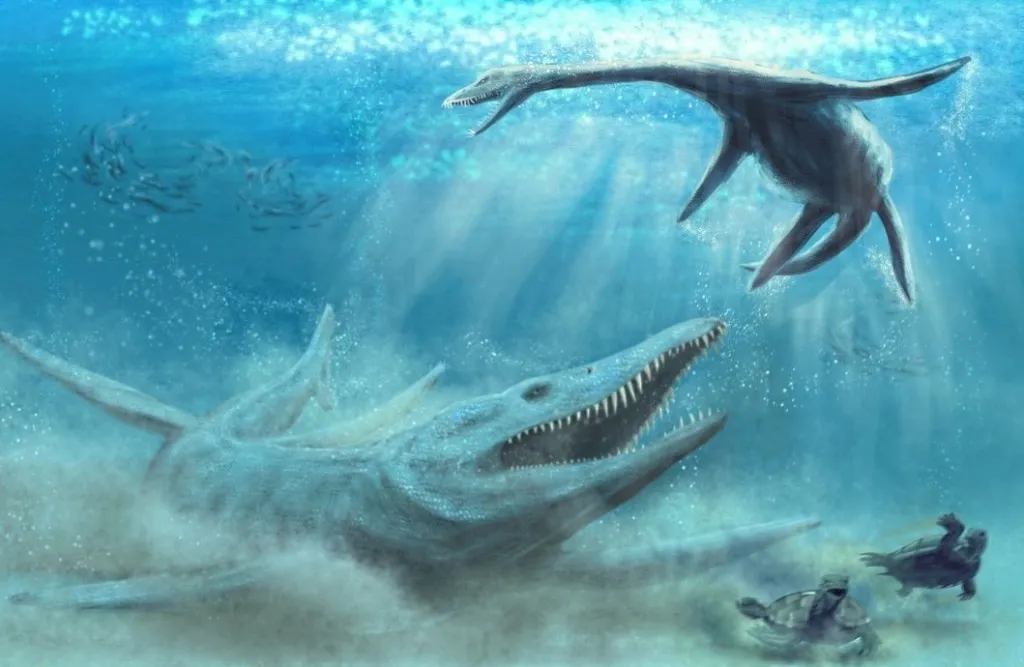 1/5Pic. Piotr Szczepaniak
1/5Pic. Piotr Szczepaniak -
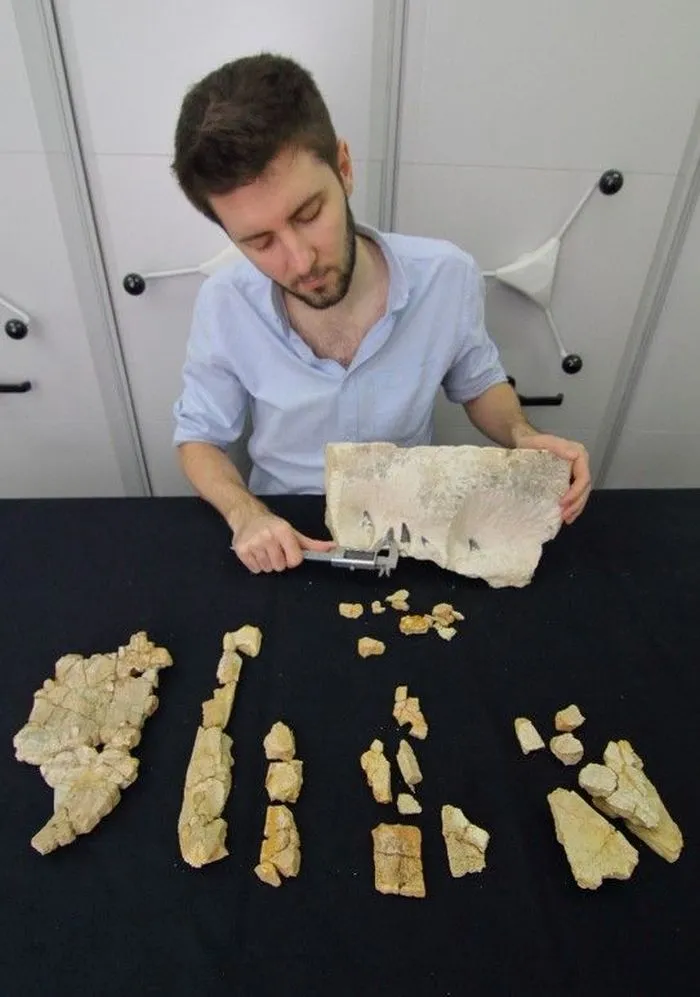 2/5Dr. Daniel Tyborowski Phhoto: Dariusz Nast
2/5Dr. Daniel Tyborowski Phhoto: Dariusz Nast -
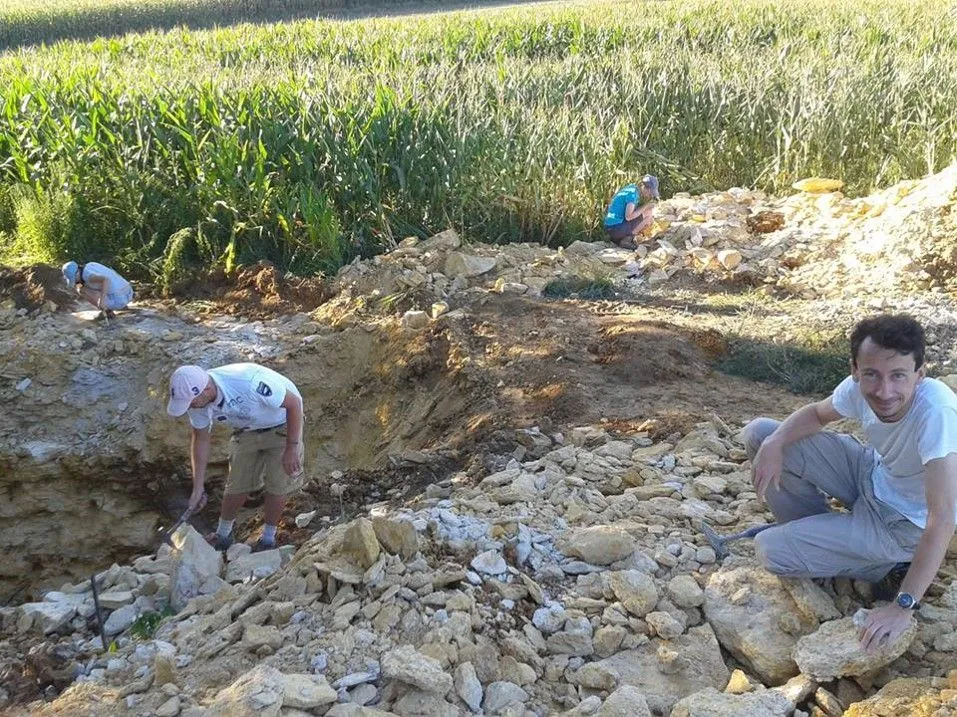 3/5Photo: Daniel Tyborowski
3/5Photo: Daniel Tyborowski -
 4/5Pic. Piotr Szczepaniak
4/5Pic. Piotr Szczepaniak -
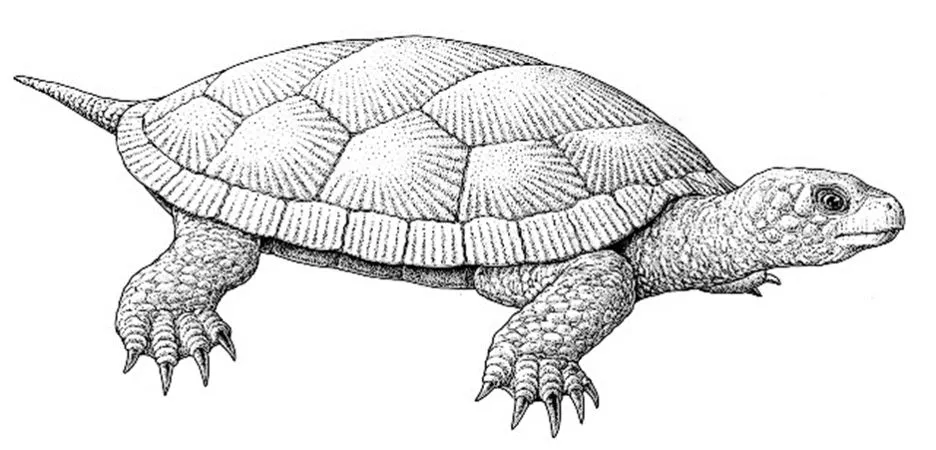 5/5Pic. Bogusław Waksmundzki
5/5Pic. Bogusław Waksmundzki

